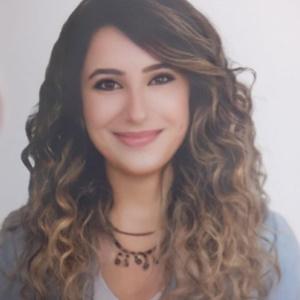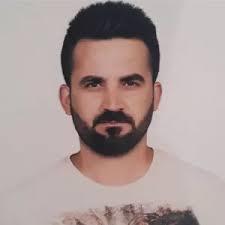Orthopedic Prosthetics and Orthotics Program
General Information
What is the Orthopedic Prosthetics and Orthosis Program?
Prosthesis is an artificial organ made in case of organ or limb loss. Orthosis is an auxiliary device applied to body parts that need to be supported, protected, fixed or corrected for any reason. Orthopedic Prosthesis and Orthosis Technician works in the production of artificial organs (prostheses) that will partially replace the functions of organs such as hands, feet and similar organs in case of loss, or auxiliary devices (orthoses) applied to body parts that need to be supported, protected and corrected.
Manual Dexterity is of Great Importance in Technicians
Those who want to become Orthopedic Prosthetics and Orthosis Technicians must have hand and finger dexterity, the ability to perceive shape and space relationships, and be meticulous and careful. People who will work in this profession should not be allergic to dust and chemicals. Orthopedic Prosthetics and Orthosis Technicians work in workshops affiliated with the rehabilitation units of hospitals.
What are the Courses Learned in the Orthopedic Prosthetics and Orthotics Program?
In the Orthopedic Prosthetics and Orthosis program, in the first year of education, basic courses such as Basic Anatomy and Physiology, Kinesiology Biomechanics, Materials Science I-II, Occupational Technology I-II, Pattern and Modeling, Introduction to Prosthetics, Introduction to Orthotics, First Aid, Positive Psychology and Communication Skills are covered; in the second year, Orthosis Analysis and Evaluation, Prosthetic Analysis and Evaluation, Professional Ethics, Communication in Healthcare Institutions, Biomedical Technology, Clinical Diseases in Prosthetics and Orthotics, Prosthetics I-II and Orthotics I-II are covered theoretically and practically. In addition, students are given an internship at the end of the education program.
What are the Working Areas of Graduates of the Orthopedic Prosthetics and Orthotics Program?
Orthopedic Prosthetics and Orthosis Technicians have a position as Health Technicians in hospitals. There is also a need for trained personnel in private workplaces operating in this field. In addition, professional personnel have the opportunity to open their own workplace. Since Orthopedic Prosthetics and Orthosis is a constantly developing branch, the need for personnel in this field is increasing.
Undergraduate Programs:
- Biomedical Engineering
- Physiotherapy and Rehabilitation
Academic Staff


Course Catalog
Double Major / Minor Programs
Double Major Program: Allows students to earn a bachelor's degree in a field they are interested in, in addition to their primary field. In this program, students can complete courses in two different fields and earn a diploma in both fields.
Minor Program: Allows students to take a certain number of courses in a field they are interested in, outside of their main department. Students who complete the minor program are given an official certificate in that field; however, this does not mean a second undergraduate degree.
- To access Double Major and Minor programs click here.
Exchange Programs
It offers students the opportunity to study at another university, either domestically or abroad, for a certain period of time. Thanks to these programs, students have the opportunity to learn about different cultures, develop their foreign language skills and gain international academic experience. The most common exchange programs include programs such as Erasmus+, Mevlana and Farabi.
- For Erasmus Program click here.
- For the Mevlana Program click here.
- For the Farabi Program click here.
Career
Purpose / Goals of the Department / Program: To prepare students for professional life by providing them with the necessary knowledge and skills in their fields.
Current Status and Future of the Department/Program: Projects carried out with current students and faculty; future goals and development plans.
Professions Under the Field: Professions that can be performed in the field and career paths that will gain importance in the future.
Employment Opportunities: Job opportunities and connections that graduates can have in the public and private sectors.
Program Introduction Presentation
It is a presentation prepared to introduce the basic features, educational opportunities and objectives of a department or program.
Contact
Address : Karaağaç Kampüsü, Sağlık Hizmetleri Meslek Yüksekokulu Binası Kat:3
- Call Center: 444 9 447
Telephone: +90 476 223 00 10 - Fax: +90 476 223 00 17
- E-mail: shmyo@igdir.edu.tr
Program Introduction Presentation
Bir bölüm veya programın temel özelliklerini, eğitim olanaklarını ve hedeflerini tanıtmak amacıyla hazırlanan sunumdur.
Contact
- Adres : Şehit Bülent Yurtseven Kampüsü, Tuzluca Meslek Yüksekokulu Müdürlüğü
- Çağrı Merkezi : 444 9 447
Telefon: +90 476 223 00 10 - 3405 - Faks: +90 476 223 00 17
- E-posta: tuzluca@igdir.edu.tr